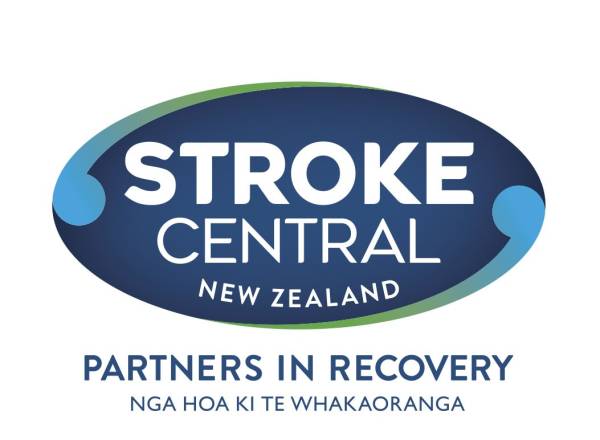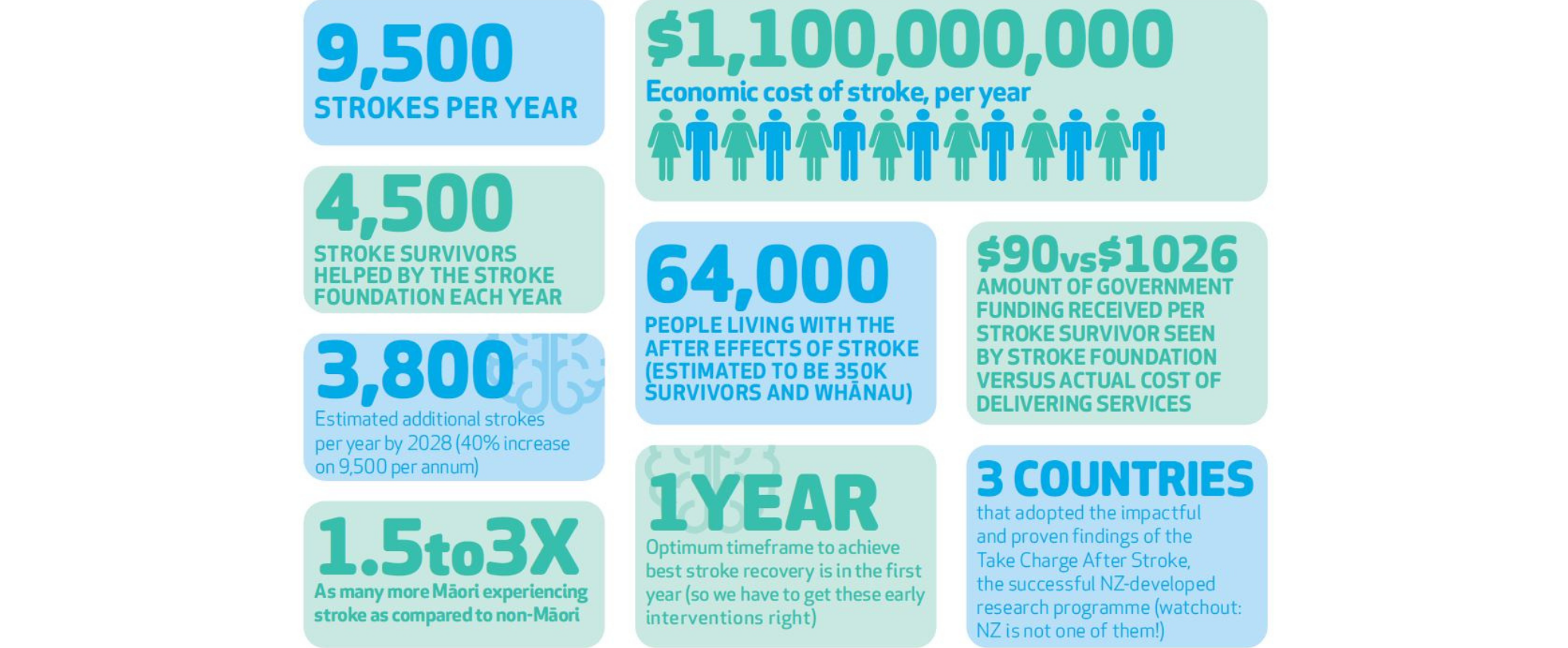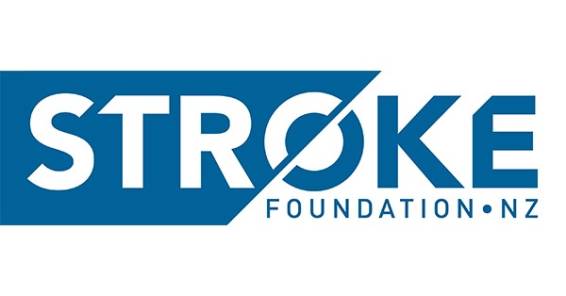The majority of strokes can be described as a sudden interruption of blood flow to part of the brain. When the blood supply is stopped, the brain no longer receives vital oxygen and nutrients, and brain cells begin to rapidly die. When brain cells die, brain function is lost. This can affect a person's ability to walk, talk, eat or complete everyday tasks and actions they were able to do before stroke.
In New Zealand, stroke is the leading cause of disability in adults and the second largest cause of death. However, with rehabilitation, many New Zealanders with stroke recover to lead happy and healthy lives. A common misconception is that stroke only affects an older demographic, however 25% to 30% of strokes occur in New Zealanders under the age of 65 and right from birth onwards. It is projected that over the next 10 years, the number of people who experience stroke will increase by 40%.
Research is crucial to ensure that we can continue to improve the treatment and rehabilitation of stroke, improving outcomes for the large and growing number of New Zealanders and their families who are affected by this devastating illness.
There are many risk factors for stroke, with high blood pressure being the most important modifiable factor. One in five strokes are preventable – but only if the recommended stroke prevention strategies are followed.
Early detection and action taken when someone is experiencing stroke is crucial. During a stroke, around 2 million nerve cells in the brain die every minute. This highlights the importance of knowing the signs of stroke to help improve the outcomes of those in your community.
We invited two leading stroke charitable organisations in New Zealand to contribute to this article: Stroke Central New Zealand and the Stroke Foundation of New Zealand. We believe working together is important to achieve the best possible outcomes for Kiwis, as we all have the common goal of striving to improve outcomes and support for those affected by stroke.

Stroke Central New Zealand is a not-for-profit organisation that provides free support services to stroke survivors and their whānau in the central region of New Zealand. We also provide all communities with stroke awareness and prevention education to reduce the burden of stroke on New Zealand as a nation.
Our current focus is stroke prevention and recovery. This includes our ongoing stroke prevention campaign #DontBeTheOneNZ as well as our new ‘Mahia Te Mahi – Take Action!’ campaign, where we collaborate with other organisations and events around the country to encourage people to live a more active and healthy life to reduce their risk of stroke and other cardiovascular diseases.
When it comes to stroke recovery, we have recently started to work with the Take Charge After Stroke method where clients are encouraged to use self-directed rehabilitation intervention within their recovery.
We also put great emphasis on the F.A.S.T. campaign to help people recognise the signs of stroke and understand that stroke is an emergency. This is a particular focus for us within Māori and Pacific communities and
we are working on improving our reach for our recovery and prevention messages within those communities.
"We are delighted to be included in this copy of Headlines as it is an opportunity to raise consciousness about the impact of stroke which is of course a neurological disease. We are always pleased to share information with organisations such as the Neurological Foundation that will help both in research and treatment". David Halford, interim CEO for Stroke Central New Zealand
Website: www. strokecentral.org.nz
Phone: 0800 298 858
Email: stroke@strokecentral.org.nz
Stroke Foundation’s mission is to prevent strokes, improve outcomes, and save lives. It provides essential community services to reduce the burden
of stroke, with a specific emphasis on reducing the risk for Māori and Pacific people and supporting their life after stroke.
“We are facing a stroke tsunami here in Aotearoa, and need to change the way that we prevent stroke and improve outcomes for stroke survivors to stem the rising tide of demand for our services,” says Jo Lambert, Stroke Foundation CEO.
The Stroke Foundation advocates for critical changes to better support the growing stroke affected community, including:
• Investment to keep people well in their communities, with a focus on priority regions, particularly for blood pressure monitoring. It currently provides this service free of charge; with a 100% funding gap.
• Government support for salt reduction targets (and other food reformulation targets such as sugar) for a wide range of processed food categories, aiming for 80% compliance, to tackle the increasing numbers of stroke exacerbated by high blood pressure.
• Help stop the “postcode lottery” by ensuring the Stroke Foundation’s Community Stroke Advisor service is routinely part of the multi-disciplinary team in a nationally integrated and consistent stroke pathway to help all survivors and their whānau navigate and connect to the support and services they need.
• Support to introduce the New Zealand designed and evidenced Take Charge After Stroke intervention, with a specific focus on our Māori and Pacific communities.
• Help ensure the sustainability of the Stroke Foundation’s service through improved funding, as Jo adds, “because if we aren’t there for our stroke affected communities, who will be?”.
If you would like to learn more about the Stroke Foundation, the outcomes it helps to create, and how to support its important kaupapa, please contact Jo Lambert, CEO, at jo.lambert@stroke.org.nz or 021 541 553 or visit www.stroke.org.nz.







